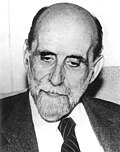| Year | Image | Winner | Field | Contribution |
|---|
| 1904 |  | José Echegaray | Literature | "in recognition of the numerous and brilliant compositions which, in an individual and original manner, have revived the great traditions of the Spanish drama" |
| 1906 |  | Santiago Ramón y Cajal | Medicine | "in recognition of their work on the structure of the nervous system" |
| 1922 |  | Jacinto Benavente | Literature | "for the happy manner in which he has continued the illustrious traditions of the Spanish drama" |
| 1956 |  | Juan Ramón Jiménez | Literature | "for his lyrical poetry, which in Spanish language constitutes an example of high spirit and artistical purity" |
| 1959 |  | Severo Ochoa | Medicine | "for their discovery of the mechanisms in the biological synthesis of ribonucleic acid and deoxyribonucleic acid" |
| 1977 |  | Vicente Aleixandre | Literature | "for a creative poetic writing which illuminates man's condition in the cosmos and in present-day society, at the same time representing the great renewal of the traditions of Spanish poetry between the wars" |
| 1989 |  | Camilo José Cela | Literature | "for a rich and intensive prose, which with restrained compassion forms a challenging vision of man's vulnerability" |
| 2010 |  | Mario Vargas Llosa | Literature | "for his cartography of structures of power and his trenchant images of the individual's resistance, revolt, and defeat" |








